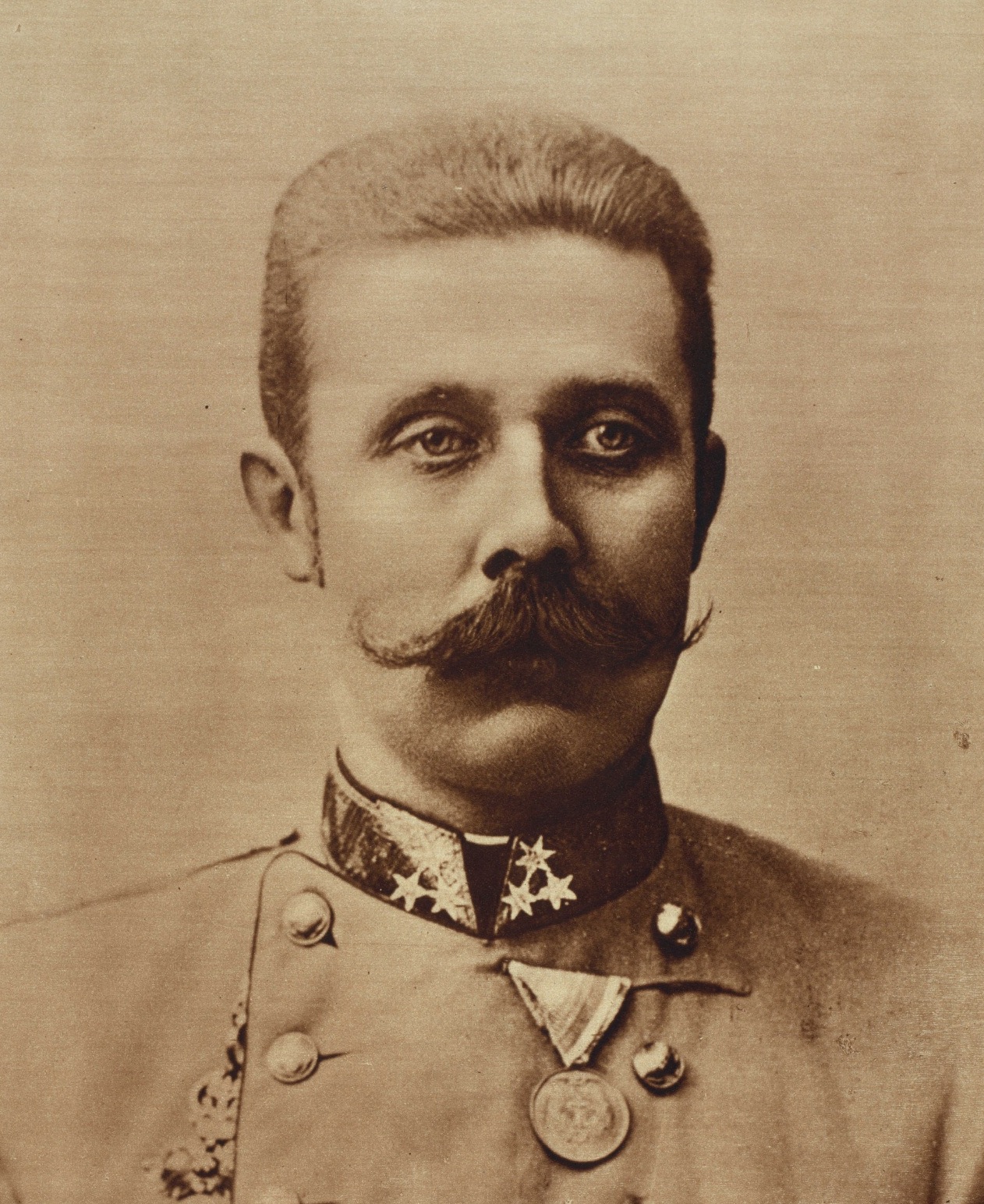Archdukes, Gunshots, Butterflies, and the Gospel
 You may not have noticed, what with the incessant American media coverage of the World Cup, but yesterday marked the 92nd anniversary of the assassination of Archduke Franz Ferdinand. Other than being known for having one of history's coolest moustaches, the Archduke Ferdinand was a fairly inconsequential political figure whose siginfigance to world history is getting plugged by some crazed Serbian anarchist/freedom fighter/terrorist (take your pick) named Gavrilo Princip. "The Assassination in Sarajevo," as it is called, precipitated the Austrian declaration of war against Serbia and was the spark that ignited the fire that began WWI, and eventually drew the world into the "First Great War."
You may not have noticed, what with the incessant American media coverage of the World Cup, but yesterday marked the 92nd anniversary of the assassination of Archduke Franz Ferdinand. Other than being known for having one of history's coolest moustaches, the Archduke Ferdinand was a fairly inconsequential political figure whose siginfigance to world history is getting plugged by some crazed Serbian anarchist/freedom fighter/terrorist (take your pick) named Gavrilo Princip. "The Assassination in Sarajevo," as it is called, precipitated the Austrian declaration of war against Serbia and was the spark that ignited the fire that began WWI, and eventually drew the world into the "First Great War."Somehow, this got me to thinking about the myriad little insignficant details that end up culminating (through some sort of interrelated "butterfly effect") in the great movements or events in world history. Those watershed moments where the course of history changed from one moment to the next. Those great "Tipping Points" (thank you, Malcolm Gladwell) that set the course of human events in a different path than before they occurred.
Johannes Gutenberg toiling in his workshop.
The birth of a Middle Eastern boy in Mecca in AD 571.
Julius Caesar crossing the rubicon in 49 BC.
An obscure Saxon friar named Johann Tetzel raising money for the construction of St. Peter's Basilica.
Michael Jackson moonwalking across the stage of the Motown 20th anniversary festivities.
In the Gospels, Jesus promised that his church would progress to the point that "the gates of hell" wouldn't be able to contain it (Matthew 16:18). Likewise, Christ has promised to make "all things new," and has called the church to participate here and now in painting a picture of his coming kingdom. But while the church is growing in Africa and Asia, the North American church has become stagnant, at best. I'm hoping and praying that we are seeing the end of this, and that Christians in the U.S. and elsewhere would embrace their nature as God's sent people - people dependent upon the Gospel, and passionate about the grace and hope that Christ offers.
Like that gunshot in Sarajevo 92 years ago, will historians one day talk about the church making making an impact on the world? And if so, what will that legacy be?


0 Comments:
Post a Comment
<< Home